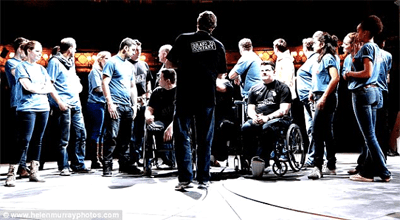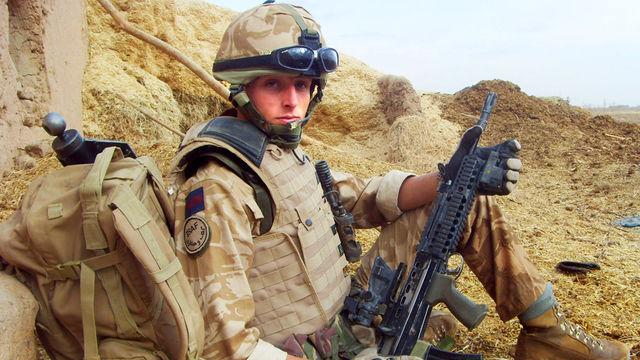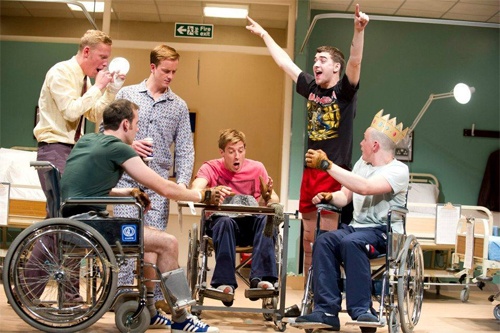The suffering of veterans
A play about and starring injured veterans, and recent government data and policies, highlights their suffering.
A DVD of the first performance of The Two Worlds of Charlie F, a remarkable play about the experience of UK military personnel injured (mostly) in Afghanistan (mentioned here), was released recently. It stars the veterans whose stories that the script, written by Owen Shears, was based on. Directed by Stephen Rayne, the company – Bravo 22 – first performed The Two Worlds of Charlie F at the Theatre Royal Haymarket in January 2012. It then went on tour, showing in Birmingham, Cardiff, and Edinburgh (where it won Amnesty International Freedom of Expression award), before returning to London to finish in September. The play was initiated by the Haymarket’s charity Masterclass, and received funding from The British Legion. Visiting Personnel Recovery Units and rehabilitation centres, Shears and Rayne learnt that 22% of UK combatants in Afghanistan have been injured. The majority of the cast are injured veterans, and all but one were still serving as of January 2012. None of them had ever acted before, although the protagonist, ‘Charlie’, a Canadian Royal Marine, had studied dance at university in the US. They are mostly men.… Read more



